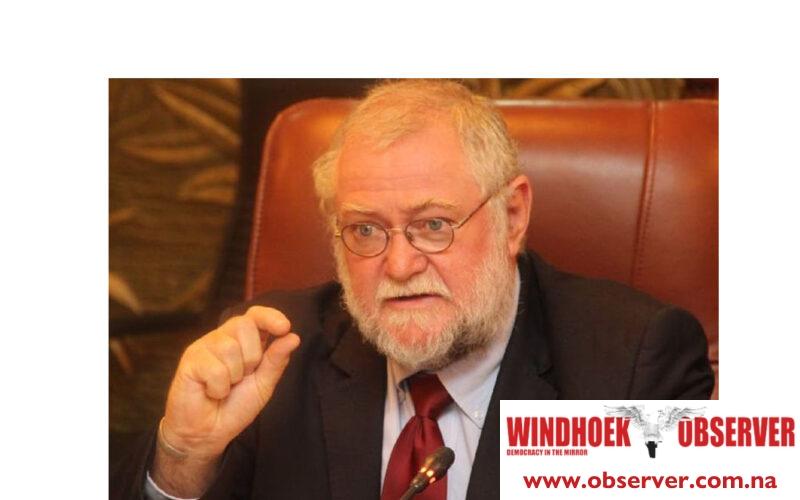Hertta-Maria Amutenja
Namibia, renowned as the driest country in sub-Saharan Africa, is contending with a worrisome trend of rising temperatures.
Carl Schlettwein, the Minister of Agriculture, Water, and Land Reform, underscored this disturbing pattern. Scientific evidence indicates that surface temperatures have risen by 1.2 degrees Celsius over the past century. Moreover, the occurrence of extreme temperatures has spiked by 10 percent in the past four decades.
At the National Workshop on Water Security and Climate Change in Windhoek, Deputy Executive Director Elijah Ngurare communicated Minister Schlettwein’s apprehensions.
“Climate change is leading to increasing temperatures and variable rainfall across Africa. This is already affecting water resource availability. Many areas are seeing a decline in surface water resources, which are especially susceptible to climate change effects and pollution, leading to increasing unpredictability,” Schlettwein explained.
Under the workshop’s theme, ‘Enhancing Synergies and Breaking Down Silos in Water Resources Management for Sustainable Development in Namibia,’ Schlettwein emphasized the need to bolster cooperation in water resource management.
He drew attention to the rise in natural disasters in Namibia in recent times, highlighting the correlation between the uptick in water-related calamities and global warming, a key influencer of climate change.
“The inherent irregular rainfall patterns in Namibia are intensified by climate change, amplifying the region’s challenge of limited water resources,” he noted while calling for strategic planning and engineering to augment water availability.
However, Schlettwein pointed out that meeting the growing water demand—propelled by burgeoning industries like mining, energy, and green hydrogen projects—necessitates a holistic strategy.
He insisted on the urgency for Namibia to establish plans and strategies for climate change mitigation.
“We must bolster our early warning systems for droughts and floods while championing climate-adaptive agriculture, sustainable economies, and land-use practices,” he articulated.
Laura McLeod-Katjirua, the Governor of the Khomas Region, echoed Schlettwein’s sentiments, emphasizing the pressing need to address water security and climate change. “Given our arid and semi-arid conditions, water is crucial to our society,” she remarked.
She also drew attention to the devastating impacts of prolonged droughts in recent years and the persistent challenge communities face in accessing clean and consistent water sources.
McLeod-Katjirua elaborated on the workshop’s goals, highlighting the significance of pinpointing specific climate change and water security challenges across all strata.
She stressed the importance of gathering insights, experiences, and suggestions for actionable solutions.




